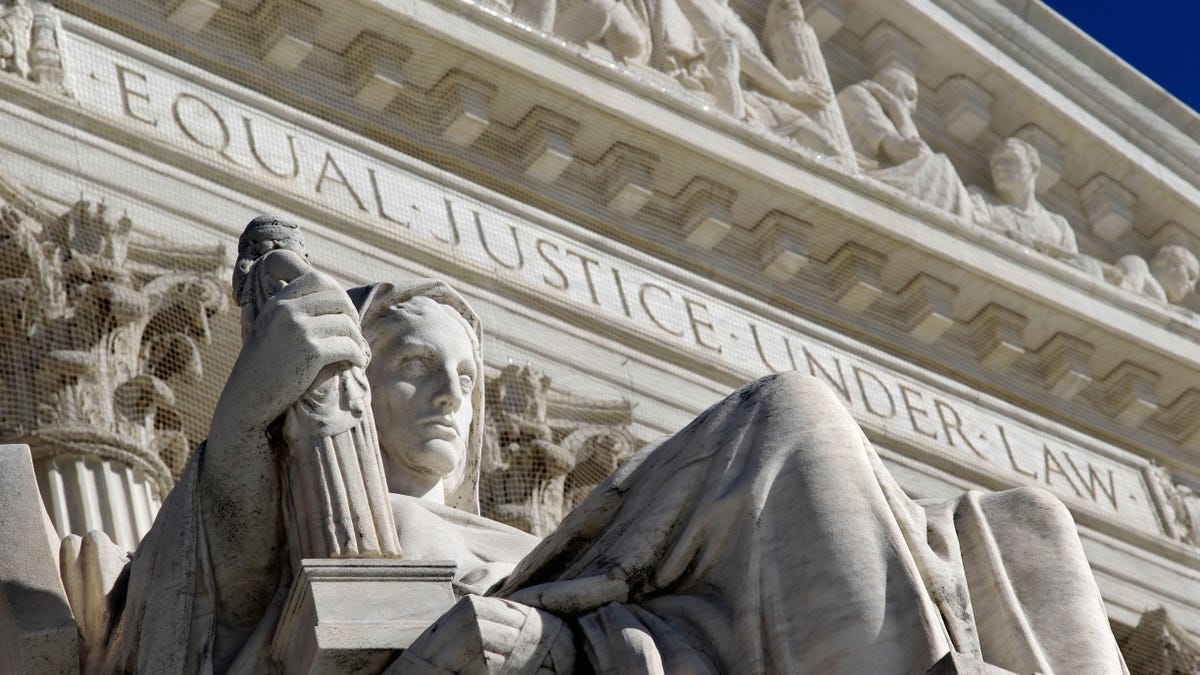
A detail of the West Facade of the U.S. Supreme Court is seen in Washington, Monday, March 7, 2011. (AP) (AP2011)
The legal fight over President Obama's health care overhaul will apparently go through normal legal channels after the Supreme Court on Monday announced it will not expedite a major lawsuit from Virginia challenging the controversial law.
It's the second time the high court has denied a expedited review request from the law's opponents. While Monday's decision doesn't foreclose others from asking the justices to do the same with their cases, it now seems unlikely that the court would break its regular protocols to hear a dispute that will almost certainly come before them -- just not now.
Virginia Attorney General Ken Cuccinelli asked the high court to intervene before the Fourth Circuit U.S. Court of Appeals in Richmond hears the case. He called the Supreme Court's decision disappointing but vowed to abide by the normal process and fight his case next in the appeals court.
"Asking the court to expedite our lawsuit was about removing this crippling and costly uncertainty as quickly as possible. ... The Supreme Court rarely expedites cases under its Rule 11. Expediting our case would have been the exception and so, although disappointing, this is not surprising," he said in a statement Monday. "This case's logical end point is the Supreme Court. It will simply have to make its way through the Fourth Circuit first."
The Fourth Circuit has scheduled oral arguments for May 10 before a three-judge panel that will be determined that day.
The justices offered no explanation for why they decided against granting the case. It was petitioned under the court's Rule 11 that allows the justices to hear cases "of such imperative public importance as to justify deviation from normal appellate practice."
One of the reasons for denying review may have been the opposition from the Obama administration. Acting Solicitor General Neal Katyal told the court, "there is no basis for short-circuiting the normal course of appellate review."
Katyal said there is no question that the case is of great public importance but uses the language of the court's own rules to say it is not "one of the rare cases that justifies deviation from normal appellate practice and require[s] immediate determination in this court." Katyal pointed out that the Virginia case and several others are already in the pipeline and little time may be saved if the court were to jump in now.
In his petition, Cuccinelli said there is a "palpable consensus" that the Supreme Court will ultimately be asked to decide whether the Affordable Care Act and its individual mandate is constitutional. While it's hard to predict the timeline of this case or the couple of dozen others working through the legal system, it's possible that the Virginia case or another could be heard by the court by this time next year with a ruling by the end of June 2012.
Monday's announcement also came with no indication that any of the justices had backed out of the case. There have been calls in recent months for at least two of the justices, Clarence Thomas and Elena Kagan, to recuse because of supposed conflicts of interest.




